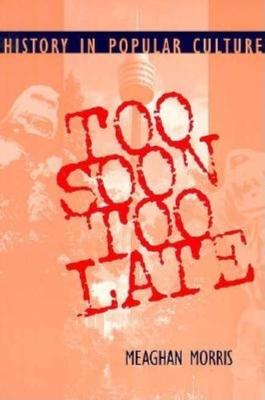Theories of Contemporary Culture
1 total work
What good is history to cultural studies? Who wants history, anyway? What can ohistoryO mean to the study of aesthetics in everyday life, and how can feminist cultural criticism participate in major public, political struggles over the meaning of the past? In this book, Meaghan Morris rejects the amnesiac model of postmodern culture: she takes issue both with currents of contemporary cultural theory that imagine a world obeyondO history, and with feminist approaches to culture that minimise questions of economy, class, and nation. Setting aside the study of historical narratives in media texts, she looks at struggles over ohistoryO in social settings created by capitalism: in tourist landscapes, and in television time. The materials of her analysis areNtowers, motels, shopping malls, beach scenes, local political combat zones. She focuses on history and cultural heritage as intensely conflicted issues for white working class and poor heritage as intensely conflicted issues for white working class and poor suburban communities, as well as for urban cultural elites. However, the popular cultures creating history in these spaces is never simply onationalO in scale or force.
As local, regional, and global economic pressures and cultural influences interact in different places, enduring new forms of politics are emerging that cultural theorists need to take time to understand. Too Soon Too Late builds on Claire JohnstonOs early work in feminist film history to ask how critics can learn more responsively to see history in popular culture.
As local, regional, and global economic pressures and cultural influences interact in different places, enduring new forms of politics are emerging that cultural theorists need to take time to understand. Too Soon Too Late builds on Claire JohnstonOs early work in feminist film history to ask how critics can learn more responsively to see history in popular culture.
